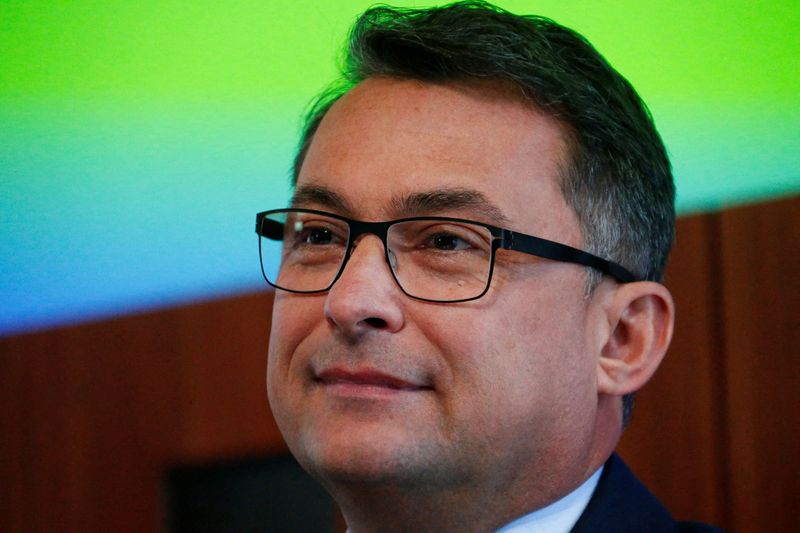Navitas stock soars as company advances 800V tech for NVIDIA AI platforms
By Geoffrey Smith
Investing.com -- Germany's central bank head called on the European Central Bank to act "decisively" to bring down inflation, adding to the pressure for a big interest rate hike at next week's policy meeting.
"Monetary policy must react decisively to preserve the credibility of its inflation target," Joachim Nagel said in a speech on Wednesday, adding: "inflation rates will not come back to their target by themselves."
Nagel was speaking barely an hour after the publication of data showing inflation in the Eurozone hit a new record high of 9.1% in August, again overshooting analysts' expectations in a repeat of what has become a worrying pattern for the ECB.
The ECB's governing council meets next week with all of its key interest rates at or above zero for the first time in eight years, having raised them by 50 basis points each at its last meeting in July. While it has indicated it intends to raise rates again in September, the bank's top management hasn't guided for a specific size of hike, and there are increasingly clear divisions between those - like Nagel - calling for the front-loading of rate hikes and others, such as the ECB's Chief economist Philip Lane, who favor more gradual increases.
Lane had said in a speech on Tuesday that he preferred a slower pace of hikes because of the extraordinarily high level of uncertainty about the economic outlook at the moment. He stressed the importance of not upsetting bond markets, which have a big influence in determining overall financing conditions in the economy.
Nagel didn't specify how big a hike he would argue for next week, but the Bundesbank is typically the most hawkish of the national central banks that are members of the Eurosystem. Newswires reported last week that some will press for a 75 bp hike in September.
Nagel by contrast appeared more concerned about the effect of letting inflation run unchecked for too long.
"The longer inflation stays high, the higher the risk that medium-term term inflation dynamics and inflation expectations, too, stick at a high level," Nagel warned.
Nagel had started his speech with an extended reference to the 1970s, attributing the popularity of Abba's "Money, Money, Money", Pink Floyd's "Money" and Liza Minelli's "Money Makes the World Go Round" to concerns about the inflation prevalent at the time.
He acknowledged key differences with the 1970s, particularly in as much as the mandates of central banks to tackle inflation are more clearly defined and understood. He also noted that the automatic indexation of wages - especially in the public sector - has now all but vanished from Europe's labor markets.
However, Nagel argued, "certain parallels between the stagflation of that time and today do indeed exist." He pointed to the fact that inflation had already been rising in both eras before the energy shocks that accentuated them. Fiscal policy, he added, had contributed to this, even though in today's environment the big pandemic-era fiscal stimulus programs are now being wound down.
